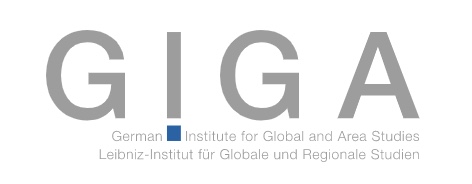Il y a moins d’un mois, Emmanuel Macron se rendait en Algérie. Pour certains, la stratégie du gouvernement français depuis le mandat de Macron témoigne d’une envie sérieuse de recoudre les liens défaits entre les deux pays. Pour d’autres, elle est un synonyme d’un continuum de pensées coloniales où les relations sont encore bien trop imprégnées de la violence de l’histoire pour arriver à un apaisement. Pour les plus pragmatiques, le déplacement de Macron n’est qu’une dynamique opportuniste de plus pour esquiver les enjeux des ressources de la guerre en Ukraine. Une question reste en suspens alors : de quoi le déplacement de Macron en Algérie est-il le nom ? Emmanuel Macron a-t-il une ligne diplomatique claire lorsqu’il s’agit de traiter avec ce dernier ?
Pour répondre à nos et à vos questions subversives et documentées, nous accueillons l’un de ses compagnons de voyage lors de ce déplacement : M. Benjamin Stora. Benjamin Stora est professeur des universités, spécialiste de l’histoire du Maghreb contemporain, de la décolonisation et de l’histoire de l’immigration maghrébine en Europe. Auteur du rapport Stora, les questions mémorielles portant sur la colonisation et la guerre d’Algérie (2021). Co-auteur de Juifs et musulmans. Echanges et différence entre deux cultures ( Espaces libres- Poches, 2021) et co-auteur de Histoire dessinée des juifs d’Algérie. De l’Antiquité à nos jours (La découverte, 2021).
Ce premier « Parlons-en » se déroulera sous une forme particulière puisqu’il vous suffira d’envoyer toutes vos questions via le formulaire et vous les poserez ensuite à l’oral. Pas de longues introductions, pas de blabla institutionnels. La formule est simple : un·e invité·e devant VOS questions.
Socie’tea a pour passion le Maghreb et sa diaspora et de les faire vivre à travers ses événements. N’hésitez pas à contribuer et nous laisser un petit mot si vous avez d’autres intervenant·es en tête ;)
Lieu :
Want to learn how cyber defence policy is developed and implemented across NATO? Then you can’t miss the next Sciences Po Cybersecurity Association online event, which will take place on November 15th, at 7.30pm!
To guide us through NATO cyberdefence policy, we are honoured to welcome Christian-Marc Lifländer, Head of the NATO Cyber and Hybrid Policy section, responsible for leading the development and implementation of cyber and hybrid policy across the alliance.
On the agenda:
- How is cyberdefence policy developed and implemented across NATO?
- What are the most pressing issues facing NATO in terms of cyber?
- How does NATO defend against cyberattacks? Does NATO Article 5 apply to cyberattacks?
- How does NATO structure itself when it comes to cyber affairs? What are the roles and tasks of the NATO Computer Incident Response Capability (NCIRC), NATO Cyberspace Operations Centre and NATO Cooperative Cyber Defence Centre of Excellence?
Previously, Mr Lifländer served as Policy Advisor, Deputy Head of Section and Head of Section in the NATO’s International Staff. Before joining NATO, Mr Lifländer held executive and senior advisory level positions within the Estonian Ministry of Defence. He holds a degree in Engineering from the United States Military Academy, West Point. as well as a MA. in Security Studies from Georgetown University’s Center for Security Studies (CSS) in the Edmund A. Walsh School of Foreign Service.
N.B.: This event is open to Sciences Po students only. It will follow the Chatham House Rules; therefore, it is strictly forbidden to register the event, quote what will be discussed or attribute to the guest statements or notions that will be presented.
When will the event take place? November 15, 2022 at 19.30.
Where? The event will be on Zoom.
Lieu :
Le séminaire "Enseignement supérieur et recherche" a pour objectif de permettre la présentation et la discussion de recherches menées en France, mais aussi en Europe et dans d'autres régions du monde, sur l'enseignement supérieur et la recherche.
Le 17 novembre de 12h30 à 14h, Liudvika Leišytė, Professor of Higher Education, Deputy Director of the Center for Higher Education (zhb), Faculty of Management and Economics, TU Dortmund University fera une présentation intitulée :
The promise and the ‘dark side’ of platform capitalism in higher education: the use of platforms in university performance management systems
Résumé :
Digitalization of higher education sector has been accelerated by the COVID-19 pandemic, aided by the usage of a variety of online platforms. The increased usage of digital platforms, however, is a rather new phenomenon in higher education systems and deeply understudied. While some authors point to the positive effects that platform services bring to higher education, others warn that higher education’s public stature, principles and values may be eroded by the EdTech industry. It is argued that EdTech companies are ‘designed not only to reduce public investments in education but also to provide potentially lucrative domains for capital, including the EdTech industry’ (Mirrless & Alvi, 2020, p. x- xi).
In this talk, I aim to characterize the usage of platforms in performance management systems, drawing on the ongoing data collection from the Dutch higher education system, that is quite advanced in terms of the digitalization of higher education. I build on the notion on platform capitalism (Cottom, 2020, Srnicek, 2017) to understand the types of platforms that are used in performance management in higher education, characterize the adoption of their products in higher education institutions and reflect on the transformation of performance management processes using digital footprints of users.
Drawing on national digital audit reports from the public sector, website analysis as well as interviews with the users of the platforms at Dutch universities, I will discuss the platform promises as well as reflect on the dubious implications for personal data protection and the emerging ‘dark’ side of platform capitalism in higher education.
Ce séminaire s'adresse et est ouvert à tous les experts, praticiens, chercheurs, enseignants-chercheurs, doctorants, intéressés par ces questions. Cette année, le séminaire prendra la forme d'un webinaire de 12h30 à 14h.
Formulaire pour vous inscrire au séminaire et recevoir le lien de connexion
Voir le programme du séminaire pour l'année 2022/2023
Contacts : Jérôme Aust ; Christine Musselin.
Évènement en Anglais

Online Event
Wednesday 30th November 10 am to 11 am (Paris Time)
Abstract:
The large Asian economies of the Indo-Pacific – China, Japan, India, and South Korea – are vital to the long-term economic prosperity of the Arab Gulf states. They are the Arab Gulf states’ largest trading and energy partners; in the decades to come, they are likely to continue to constitute a principal source of demand for Gulf hydrocarbons despite the global transition to a net zero carbon economy. Meanwhile, the Gulf states have embarked on ambitious economic modernization visions that are meant to prepare them for a post-oil world. The large Indo-Pacific economies are also positioning themselves as providers of technology and know-how to the Gulf states, forging partnerships that the Gulf states view as being key to their own economic modernization strategies. Although trade, investments, migration, and technology are likely to remain the backbone of the Gulf states’ relations with the large Indo-Pacific economies, nascent defence and security cooperation suggests that these relations are already spilling over into the strategic realm.
From a geostrategic perspective, the Gulf states consider their Indo-Pacific ties as being instrumental to building up their geo-economic power through trade, investments, and the transfer of knowledge. Given the US’s waning security commitment to the Gulf region, the Gulf states are conscious of the strategic imperative of building up their national economic and military capabilities to achieve autonomy. For now, strategic autonomy remains partial and elusive as the Gulf states are still dependent on their defence and security partnership with the US. The Gulf states consider economic diversification particularly into high-tech sectors and localizing defence industrial production – areas where their Indo-Pacific partnerships may serve them well – as prerequisites for acquiring strategic autonomy in a post-American order.
Speaker :
Dr. Hasan Alhasan is a Research Fellow for Middle East Policy at The IISS. He specialises in the Gulf region's geopolitics, geo-economics, and relations with South Asia. His current research examines the Arab Gulf states' 'bailout diplomacy' in the MENA region, their Indo-Pacific strategies, and their foreign and security policies towards Iran and Afghanistan. He is the co-editor of "India and the Gulf: Theoretical Perspectives and Policy Shifts" (Cambridge University Press, forthcoming). Hasan previously served for five years as senior analyst on foreign policy and national security at the Office of the First Deputy Prime Minister of Bahrain. He has earned a PhD in International Relations from King's College London. He is also a graduate of Sciences Po Paris (cum laude) and the London School of Economics and is a 2007 recipient of the Crown Prince’s International Scholarship Program in Bahrain.
Chair & Moderation:
Nicolas Blarel, Leiden University
Eckart Woertz, GIGA
Scientific coordinators : Christophe Jaffrelot, Sciences Po-CERI / CNRS, David Camroux, Sciences Po - CERI, Patrick Köllner, GIGA and Amrita Narlikar, GIGA.


 07/11/2022
07/11/2022 18:00
18:00 




